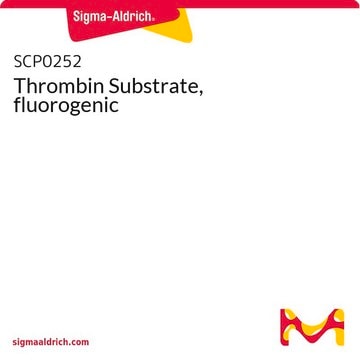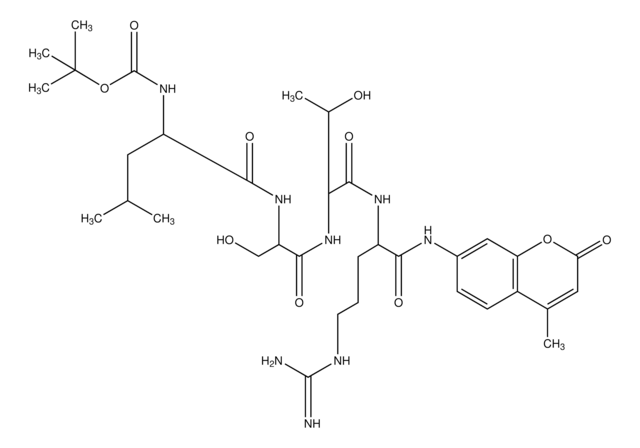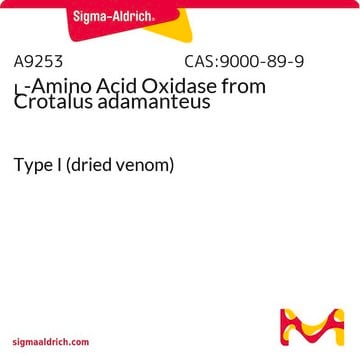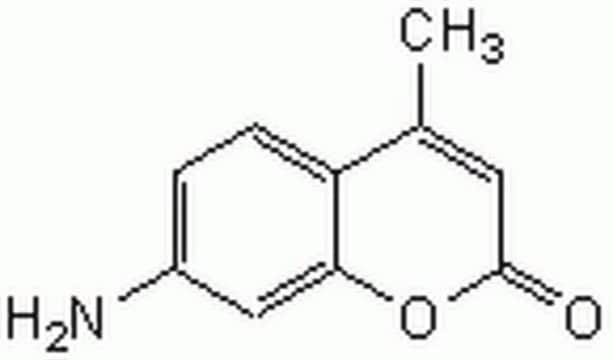Key Documents
B9385
Boc-Val-Pro-Arg-7-amido-4-methylcoumarin hydrochloride
About This Item
Polecane produkty
Próba
≥98% (TLC)
Poziom jakości
Postać
powder
rozpuszczalność
water: 20 mg/mL, clear, colorless
temp. przechowywania
−20°C
ciąg SMILES
Cl.CC(C)C(NC(=O)OC(C)(C)C)C(=O)N1CCCC1C(=O)NC(CCCNC(N)=N)C(=O)Nc2ccc3C(C)=CC(=O)Oc3c2
InChI
1S/C31H45N7O7.ClH/c1-17(2)25(37-30(43)45-31(4,5)6)28(42)38-14-8-10-22(38)27(41)36-21(9-7-13-34-29(32)33)26(40)35-19-11-12-20-18(3)15-24(39)44-23(20)16-19;/h11-12,15-17,21-22,25H,7-10,13-14H2,1-6H3,(H,35,40)(H,36,41)(H,37,43)(H4,32,33,34);1H
Klucz InChI
ROQGJTZGLVLVIN-UHFFFAOYSA-N
Opis ogólny
Zastosowanie
- as a fluorogenic substrate for thrombin in inhibitory assay with salivary protein cE5
- as a fluorogenic substrate for thrombin in inhibitory assay with recombinant E. nipponicum serpin
- as a substrate in proteinase assay with hemolymph protein
Opakowanie
Substraty
Kod klasy składowania
11 - Combustible Solids
Klasa zagrożenia wodnego (WGK)
WGK 3
Temperatura zapłonu (°F)
Not applicable
Temperatura zapłonu (°C)
Not applicable
Środki ochrony indywidualnej
Eyeshields, Gloves, type N95 (US)
Certyfikaty analizy (CoA)
Poszukaj Certyfikaty analizy (CoA), wpisując numer partii/serii produktów. Numery serii i partii można znaleźć na etykiecie produktu po słowach „seria” lub „partia”.
Masz już ten produkt?
Dokumenty związane z niedawno zakupionymi produktami zostały zamieszczone w Bibliotece dokumentów.
Klienci oglądali również te produkty
Protokoły
Thrombin is an endolytic serine protease that selectively cleaves the Arg–Gly bonds of fibrinogen to form fibrin and release fibrinopeptides A and B.
Nasz zespół naukowców ma doświadczenie we wszystkich obszarach badań, w tym w naukach przyrodniczych, materiałoznawstwie, syntezie chemicznej, chromatografii, analityce i wielu innych dziedzinach.
Skontaktuj się z zespołem ds. pomocy technicznej









